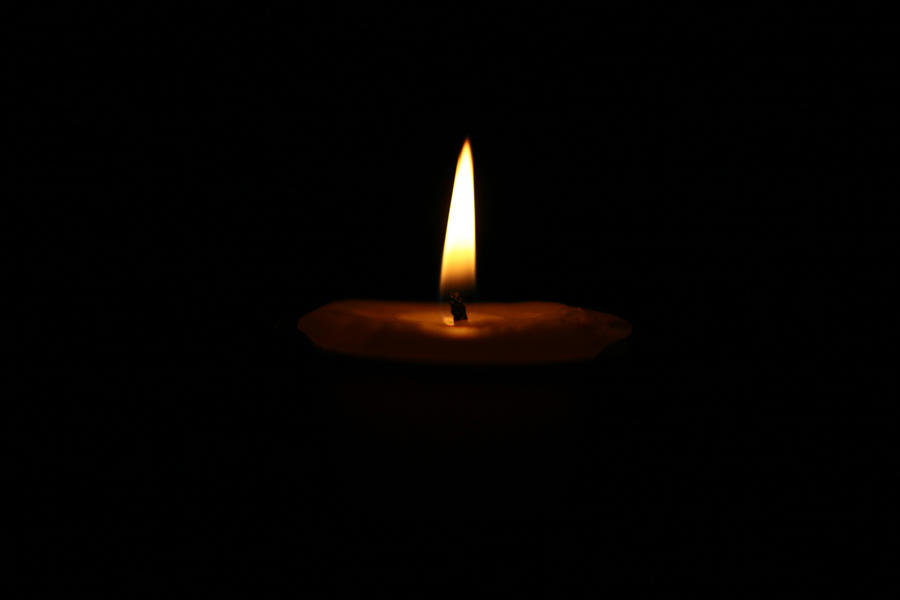The Light Shines in the Darkness
John 1:1-14, Christmas Day, 2012
“In the beginning was the Word, and
the Word was with God, and the Word was God. 2He was in the
beginning with God. 3All things came into being through him,
and without him not one thing came into being. What has come into being 4in
him was life, and the life was the light of all people. 5The light shines in the darkness, and the darkness did not
overcome it.”
Eleven days ago at Sandy Hook Elementary School in Newtown
Connecticut, we saw the darkness. We watched in horror, in shock, in anger, in
grief, as 28 people, 20 of them first grade children, lost their lives in an
act of unspeakable evil. My wife and I struggled, even in our own grieving and
questions, with how to talk with our kids about it, how to assure them that
they could feel safe even while living in a world where the darkness of evil,
the darkness of sin, the darkness of our own brokenness, surrounds us. I know
we weren’t alone in that struggle. Which
is why today’s gospel reading is so important, why the birth of Jesus in a barn
in Palestine 2,000 years ago is important, why today of all days, Christmas
Day, we hear a gospel reading not of shepherds and wise men, not of stars and
angels, but of the God who was there in the very beginning, the God who with a
word created the heavens and the earth, the God who proclaimed “let there be
light!”, the God who took on flesh and lived among us, the God who IS the light
that shines in the darkness, the God that no amount of darkness can overcome.
Today, we need Christmas.
We need to hear that we have not been abandoned to the
darkness. We have not been left to our own devices, to our own will, to our own
strength. Whether it is a first grade classroom in Connecticut, or a pink slip
at work, or the bottom of a booze bottle, or the pang of hunger before bed
knowing that it will have only grown by morning, or the fear of what will
happen after a doctor’s diagnosis, or the relentlessness of Mother Nature, or
the betrayal of a loved one, or of anything else, we know the darkness. We’ve
experienced the darkness. The darkness is a very real thing, and no amount of
tinsel or wrapping paper can cover that up.
This Christmas morning, we worship a God who chose to be
Immanuel, God with us, who chose to take on flesh, to come to us through the
upside down power of humility, who chose a way not of glory, but the way of
self-giving love for the sake of the other, the way of the cross. We worship a
God who is the light shining in the darkness. We worship a God who the darkness
has not overcome.
Over the last week or so, many of us I’m sure have heard attempts
to explain the darkness we saw in Connecticut, as well as the larger darkness
of sin and evil. We’ve heard from various sources that evil acts like what we
saw in Connecticut or the week before in Oregon happen because we’ve taken God
out of the public square, or because we’ve removed God from the schools. This
isn’t a message that began recently, either. Every year we hear about the “War on
Christmas,” every year we’re warned that if we say “Happy Holidays” instead of
“Merry Christmas,” or if the money we spend and the credit cards we max out and
the stores we keep open late between Black Friday and December 25 aren’t in
honor of Jesus, or if we don’t have a manger scene in the town square, that we
will have taken Christ out of Christmas.
Our Christmas Day gospel account, as well as the very message
of Christmas itself, tells us that nothing could be further from the truth. We
don’t have the ability to remove God from anywhere. It’s not possible for us to
take the baby Jesus and hide him away, safely out of sight. Any thinking about
who God is or what God can do or what God IS doing that gives humankind the
ability to manipulate God for our own purposes is much too small for what we
read in the first chapter of John. Jesus IS Immanuel, God-With-Us. Jesus IS the
light of the world, and that light shines not in the halls of power, not in the
good, proper, places where we might otherwise expect, but in the darkness. It shines in our
sinfulness. It shines in our brokenness. It shines in a Bethlehem stable. It
shines at the dinner table with prostitutes and tax collectors. It shines with
the lepers and the sick and the outcast. It shines on the cross. It shines in
the empty tomb.
And Jesus, light of the world, God-With-Us, shines yet today,
bringing light to the dark. God cannot be removed from the world God made, the
world God loves, and the world God is redeeming. God simply will not be kept
out. That’s the beauty of the story of
Christmas. God breaks in. God breaks through.
We don’t act on God, God acts on us. We don’t come to God—God
comes to us. We can’t take God out of any part of our individual or societal
life, because God is God, we are not…and God has promised to be with us always,
even to the end of the age. And so, according to John, according to what we
celebrate at Christmas, according to the Incarnation, we don’t put God anywhere or take God anywhere. God finds us. God comes to us. God comes alongside
us in our darkness, and doesn’t just shine a light…God is the light. God becomes the
light.
The light shines in the darkness, and the darkness did not
overcome it.
Where we should expect God to be is exactly where we see the
shadows, where we see the darkness, where we see the sin and pain and suffering
and brokenness in our world. And not because that’s the way we would have it,
but because that’s the way God would have it. God is right there in those dark
places and in the dark places of our own lives shining the light of God’s own
self, the light of Christ, the light of God’s peace, God’s hope, God’s
wholeness, God’s shalom and
dispelling the fear of our own dark nights.
This baby in the manger is the same God who was present at
the beginning of time, at the creation of the universe.
This baby in the manger is the same Word who was spoken to Abraham and spoken through the prophets, the Word of
redemption and of new life and of a blessing for the entire world.
This baby in the manger is the same relentless God who cannot
be pushed out or kept back, the God who took on flesh and took on our humanity,
the God who was executed by the worldly power of empire.
This baby in the manger is the same Living Word who through
his resurrection three days later refused to allow death to have the final
word.
This baby in the manger is the same God who refuses even
today to let us go, who promises us still that there is nothing in heaven or on
earth that can separate us from God’s love.
The light of Jesus shines in our darkness. And the darkness
did not overcome it.
Amen.






